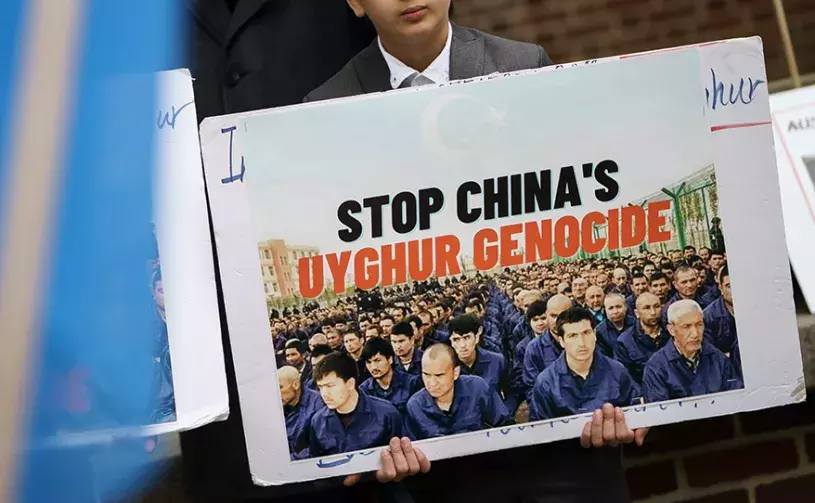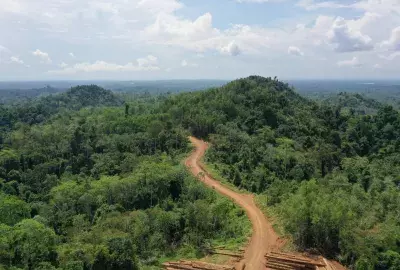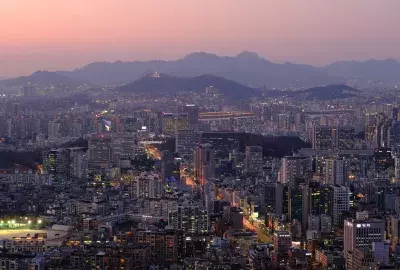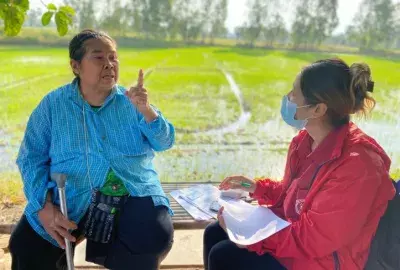
The government of China is engaged in a systematic campaign to eradicate culturally, if not physically, the Uyghur Muslim minority of Xinjiang Autonomous Region. The US State Department characterizes this policy as “genocide,” documenting an extensive list of continuing abuses against Uyghurs and members of other religious and ethnic minority groups. Having made this assessment, the issue is how best to respond. How can economic diplomacy be brought to bear to ensure foreign consumers are not unwitting accomplices to these abuses, including the use of forced labor, and how can those same policy tools be used to name, shame, and try to change behavior of the world’s largest exporter? A multifaceted response is required, combining targeted economic sanctions, coordinated responses to refugees fleeing Xinjiang, private industry-led initiatives, and more symbolic acts including a boycott of the 2022 Olympic Games in Beijing.
Photo: Supporters of the East Turkistan National Awakening Movement rally in front of the British Embassy ahead of an April 22 vote in the British House of Commons on whether or not to declare that a genocide is underway in Xinjiang province and Chinas treatment of the Uyghur Muslims on April 16, 2021 in Washington, DC. The group is calling for Uyghurs and other Turkic people fleeing Xinjiang to be granted refugee status and calling for an international boycott of the 2022 Winter Olympic Games in Beijing, China. (Photo by Drew Angerer/Getty Images)
The government of China is engaged in a systematic campaign to eradicate culturally, if not physically, the Uyghur Muslim minority of Xinjiang Autonomous Region. The US State Department characterizes this policy as “genocide,” documenting an extensive list of continuing abuses against Uyghurs and members of other religious and ethnic minority groups. Having made this assessment, the issue is how best to respond. How can economic diplomacy be brought to bear to ensure foreign consumers are not unwitting accomplices to these abuses, including the use of forced labor, and how can those same policy tools be used to name, shame, and try to change behavior of the world’s largest exporter? A multifaceted response is required, combining targeted economic sanctions, coordinated responses to refugees fleeing Xinjiang, private industry-led initiatives, and more symbolic acts including a boycott of the 2022 Olympic Games in Beijing.
Photo: Supporters of the East Turkistan National Awakening Movement rally in front of the British Embassy ahead of an April 22 vote in the British House of Commons on whether or not to declare that a genocide is underway in Xinjiang province and Chinas treatment of the Uyghur Muslims on April 16, 2021 in Washington, DC. The group is calling for Uyghurs and other Turkic people fleeing Xinjiang to be granted refugee status and calling for an international boycott of the 2022 Winter Olympic Games in Beijing, China. (Photo by Drew Angerer/Getty Images)








